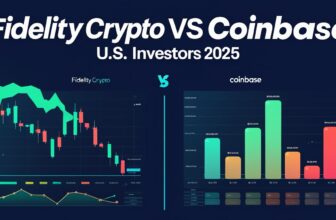
Background: Elon Musk’s role in crypto
Elon Musk has become a highly visible figure in the cryptocurrency world—his public endorsements, business decisions and social-media mentions have helped drive interest in certain digital assets. He has confirmed holding major cryptocurrencies such as Bitcoin and Ethereum. According to one source, Musk has publicly said that none of his companies will ever create a crypto token. His tweets have also been shown to influence crypto markets: for example a study found non-negative tweets from him raised abnormal Bitcoin returns significantly. The phenomenon of “meme coins” — cryptocurrencies created more for social media hype than for strong technological fundamentals — pairs strongly with Musk’s influence, making any token that references him or his brand automatically garner attention.
What does “Elon Musk crypto coin” actually mean?
First, it is essential to understand that there is no officially issued cryptocurrency by Elon Musk or one formally endorsed by him under his personal name or company brand. Many tokens use his name or likeness but have no verified link to him or his organizations. The phrase “Elon Musk crypto coin” thus becomes ambiguous: it may refer to a token inspired by his persona, a meme coin trying to ride his popularity, or simply marketing positioning rather than an official venture. Because of this ambiguity, investors might mistakenly assume endorsement or backing by Musk, which increases risk.
Prominent examples of Musk-related meme coins
In these cases you can observe that the use of Musk’s name or theme acts as a branding lever rather than indicating a formal connection to Musk or his companies. Investability should therefore be viewed with caution.
Why such coins attract attention and carry risk
These tokens gain attention because the use of Musk’s name or brand automatically draws social engagement, media coverage and retail investor interest. Musk’s prior tweets and mentions have triggered sharp price movements in cryptos like Dogecoin. The narrative of “if Musk supports it, it might go to the moon” drives FOMO (fear of missing out) among some investors. On the flip side, the risks are significant. Because many of these coins lack official affiliation with Musk, they often also lack transparent utility, robust tokenomics or governance structures. The value proposition tends to depend heavily on hype rather than fundamentals. Regulatory risk is also higher for meme coins: for instance, the U.S. Securities and Exchange Commission (SEC) has indicated that many meme coins don’t meet the criteria of securities, meaning they have less regulatory oversight but also less investor protection.
How to evaluate a coin claimed to be an “Elon Musk crypto coin”
When evaluating such a token, consider the following questions:
- Is there any verified endorsement or backing from Elon Musk or one of his companies? Lack of this is a major red flag.
- What is the total supply and distribution tokenomics? Tokens with extremely large supplies may limit per-unit value.
- Does the token offer a real use-case beyond meme branding (such as payments, staking, governance)?
- Is the development team publicly known? Is there a transparent roadmap? Anonymous teams or vague plans are riskier.
- How active is the community? Are there reputable exchange listings and sufficient liquidity?
As a best practice for investors, it’s wise to treat any token labeled as “Musk-inspired” (but not officially endorsed) as high-risk. Only invest amounts you can afford to lose, resist jumping solely on celebrity hype, review the project’s documentation and tokenomics, and diversify rather than placing all capital into one such meme coin.
Conclusion
The term “Elon Musk crypto coin” usually refers to a token that uses Elon Musk’s name, persona or brand in its marketing rather than a crypto currency officially issued or endorsed by him. While Musk’s influence on the crypto market is substantial—especially through his social-media activity and his firm’s earlier Bitcoin holdings—investors should not assume any token bearing his name is legitimate or low-risk. Many are purely speculative, relying on branding and hype. Rigorous due diligence, understanding of tokenomics, scrutiny of team and utility, and caution are essential before engaging with any such coin.
FAQs
1. Does Elon Musk have his own cryptocurrency?
No — as of now, there is no official cryptocurrency that Elon Musk has launched or formally endorsed as his own. Many coins use his name or persona but no verified connection exists.
2. What is the most famous Musk-related crypto?
The most well-known is Dogecoin (DOGE). Musk has publicly referenced it multiple times and called it “the people’s crypto.”
3. If a coin uses Musk’s name, does that guarantee safety or legitimacy?
Not at all. The use of Musk’s name or branding does not guarantee legitimacy or utility. Such coins often lack backing, real use-case or governance.
4. What are the major risks of investing in Musk-branded meme coins?
Major risks include high volatility, dependence on hype rather than fundamentals, minimal utility, lack of transparency, and regulatory uncertainty.
5. How can I identify a better crypto project instead of purely hype-driven coins?
Look for tokens with clear use-cases, reasonable supply, transparent teams and roadmaps, listings on reputable exchanges, and absence of reliance solely on celebrity branding.

















